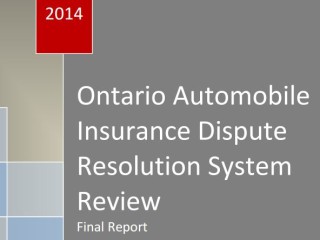Released November 23, 2015 | Full Decision
In this decision, the Court of Appeal considered the order of a motion judge granting summary judgment and dismissing the plaintiff’s action. The motion judge dismissed the plaintiff’s action on the basis that it was statute-barred by operation of the two-year limitation period, pursuant to section 4 of the Limitations Act.
The plaintiff commenced an action against the Belleville Police Service due to actions taken by one of their police officers. On August 18, 2009, a Belleville police officer pulled the plaintiff over and confiscated her vehicle. He left the plaintiff and her children to make their own way home. She was pregnant at the time and alleged medical complications in her pregnancy as a result of the police officer’s conduct.
The plaintiff wrote to a lawyer on August 24, 2009 asking whether she should pursue a civil action, but did not commence a claim at that time. On September 11, 2009, the plaintiff wrote a letter of complaint to the Belleville Police Service and requested a review of her complaint by the Ontario Civilian Police Service (“OCPS”). Her complaint was upheld and she was informed of the decision on November 29, 2012, in correspondence by the Belleville Chief of Police.
On October 10, 2013 – more than four years after the initial incident – the plaintiff commenced her action.
The motion judge held that the limitation period commenced on August 18, 2009 at the earliest (the date of the incident) and August 24, 2009 at the latest (the date the appellant wrote to a lawyer). The plaintiff appealed.
The appellant argued that the limitation period did not begin to run until November 29, 2012 as that was the date she learned of the decision of the OCPS and was therefore informed of the breach of standard of care of the police officer.
The Court of Appeal rejected this argument. It was held that a claim is discovered on the date the claimant knew, or ought to have known, of the material facts giving rise to the claim. The Court of Appeal cited their 2011 decision of Lawless v Anderson for the principle that determining whether a person had discovered a claim was a fact-based analysis. The question to be posed is whether the prospective plaintiff knows enough facts on which to base an allegation of negligence against the defendant. If the plaintiff does, then the claim has been “discovered”, and the limitation period begins to run.
The Court of Appeal further noted that this was not a case in which expert evidence was required in order for the appellant to have discovered her claim. The facts of the case were straight-forward and known to the appellant at the time of the incident. She was aware of the offending conduct, the identity of the offender, and the nature of her injuries. The Court of Appeal held that although the investigation provided additional support for the appellant’s claim, the discovery of her claim did not depend on it.












